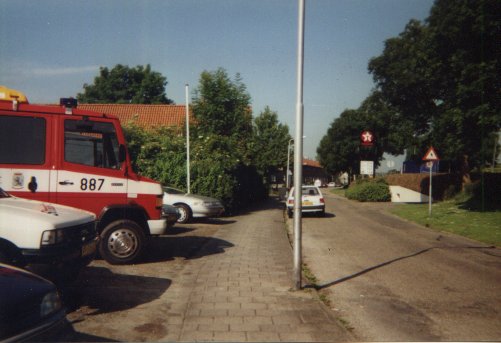


The main industry of this very small town is flowers. What seem to be
back gardens harbouring very large greenhouses are in fact nurseries with
the house close by so the flower-growers don't have to commute to work.
Between the greenhouses run ditches of smelly brown water, their sides
caked yellow with insecticide residues. I only worked there, and as such
saw the Dutch from their impersonal businesslike side, but a colleague
who lived there repeatedly had a brick thrown through the window by some
little yob who used racism as an excuse for his desire to break things.
The young in this town and the surrounding areas are generally antisocial.
That they mature into placid, satisfied adults supports my theory that
Freud was wrong about the libido being humanity's primary drive. To the
Dutch, at any rate, causing material, physical and/or emotional damage
is better than sex.
The focal point of Roelofarendsveen: the tulip tower.
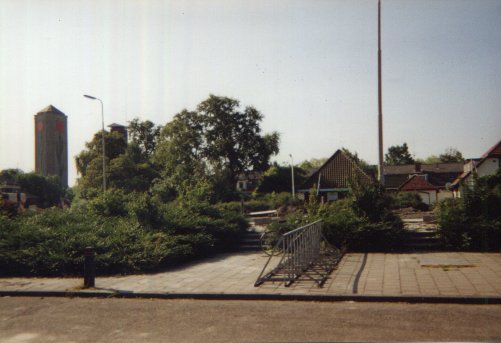
This is what most of the housing here looks like; average to cheap. The bulb industry doesn't exactly make people rich.
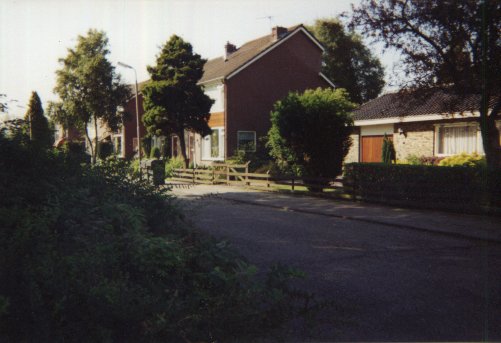
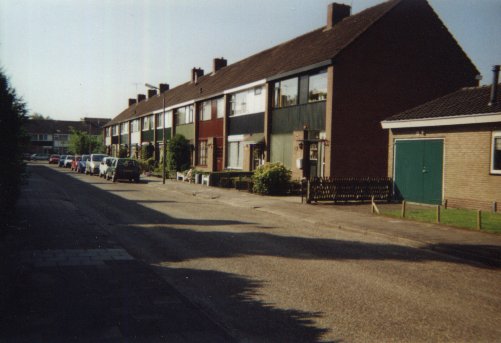
More of the same. The first picture shows blocks arranged in U shapes.
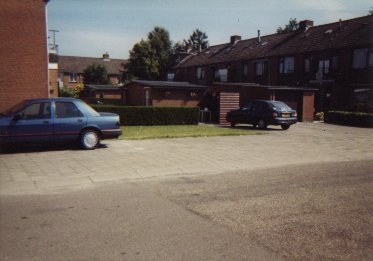
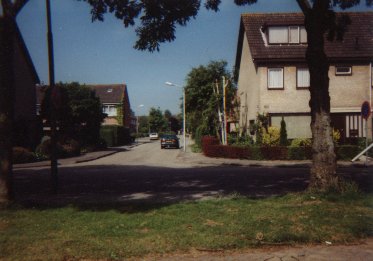
So, these luxury apartments look very out of place. There were local protests against their construction, although I don't know the details.
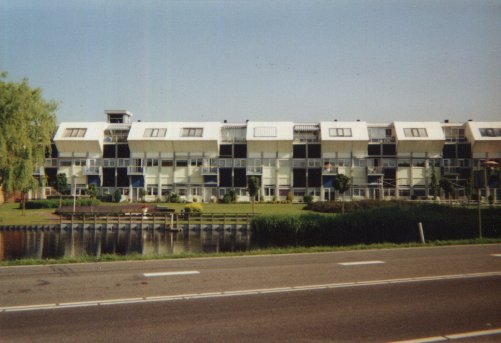
And what a surprise. I saw this beauty from a bygone era travelling up the street called "Noordweg". At the end of this street is a Chinese restaurant where the waiters are civilized and the customers, I've heard, sometimes not.
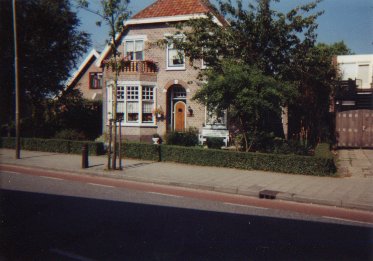
R.A.Veen (as it's abbreviated) from another angle; following this road leads to the lab where I worked as a temp propagating plants, a finicky and, as always, underpaid job. The route led past large houses with even larger gardens containing many species of plants; this was evidently where the gardening enthusiasts lived.
